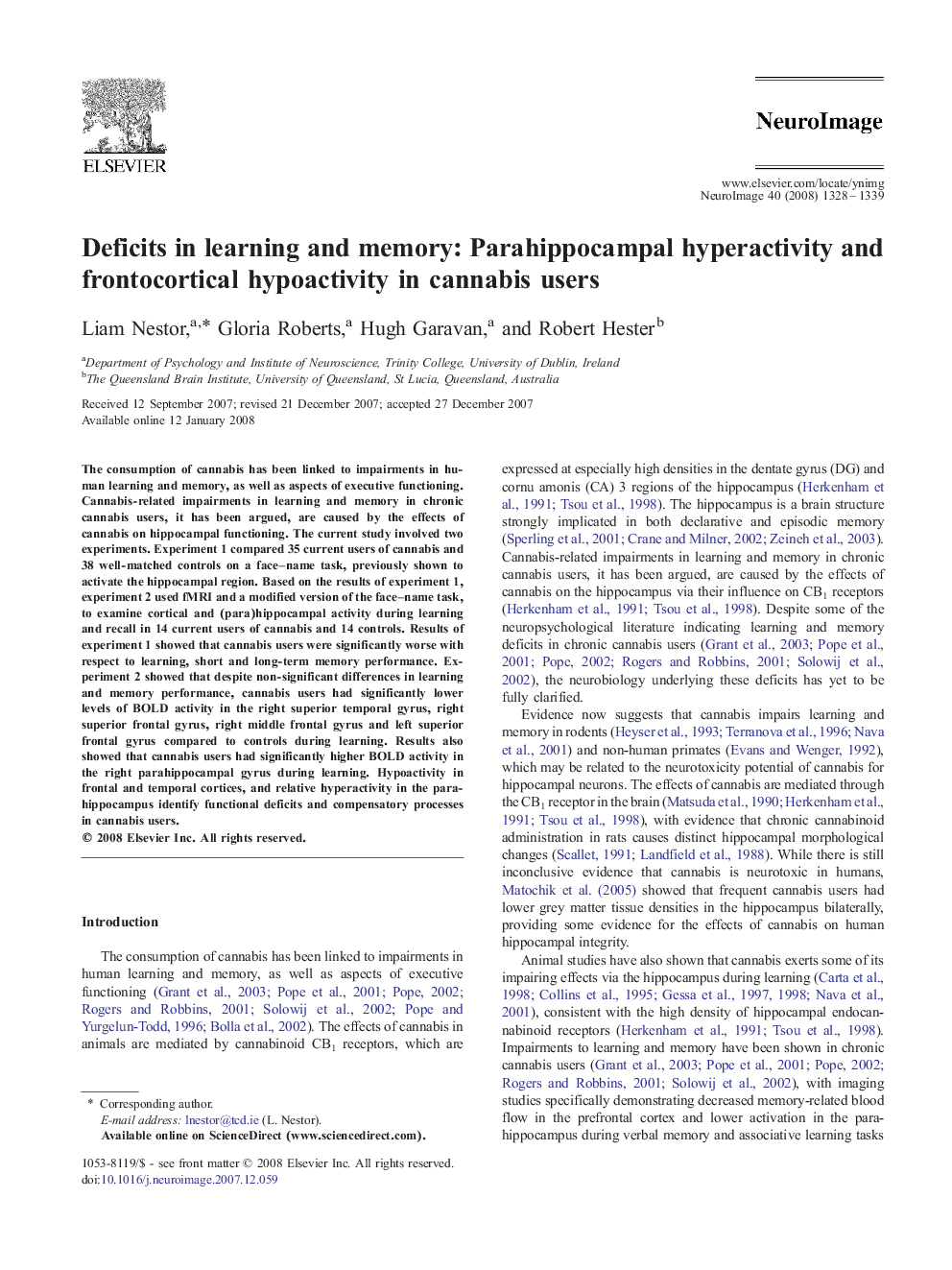| Article ID | Journal | Published Year | Pages | File Type |
|---|---|---|---|---|
| 6039716 | NeuroImage | 2008 | 12 Pages |
Abstract
The consumption of cannabis has been linked to impairments in human learning and memory, as well as aspects of executive functioning. Cannabis-related impairments in learning and memory in chronic cannabis users, it has been argued, are caused by the effects of cannabis on hippocampal functioning. The current study involved two experiments. Experiment 1 compared 35 current users of cannabis and 38 well-matched controls on a face-name task, previously shown to activate the hippocampal region. Based on the results of experiment 1, experiment 2 used fMRI and a modified version of the face-name task, to examine cortical and (para)hippocampal activity during learning and recall in 14 current users of cannabis and 14 controls. Results of experiment 1 showed that cannabis users were significantly worse with respect to learning, short and long-term memory performance. Experiment 2 showed that despite non-significant differences in learning and memory performance, cannabis users had significantly lower levels of BOLD activity in the right superior temporal gyrus, right superior frontal gyrus, right middle frontal gyrus and left superior frontal gyrus compared to controls during learning. Results also showed that cannabis users had significantly higher BOLD activity in the right parahippocampal gyrus during learning. Hypoactivity in frontal and temporal cortices, and relative hyperactivity in the parahippocampus identify functional deficits and compensatory processes in cannabis users.
Related Topics
Life Sciences
Neuroscience
Cognitive Neuroscience
Authors
Liam Nestor, Gloria Roberts, Hugh Garavan, Robert Hester,
